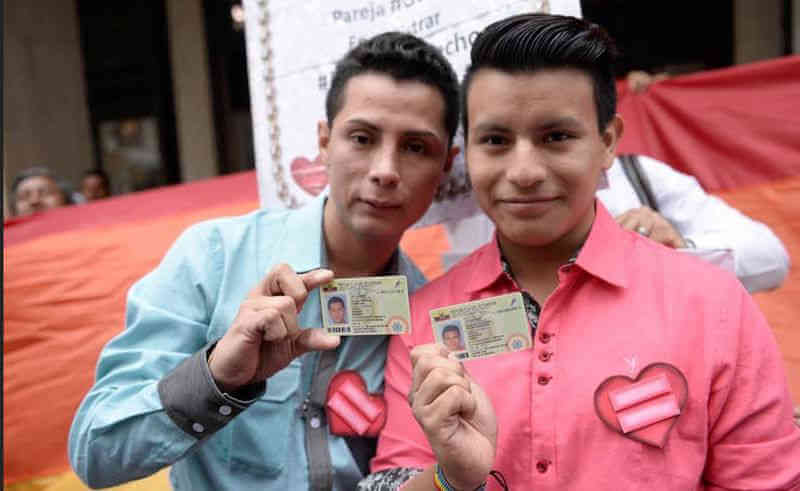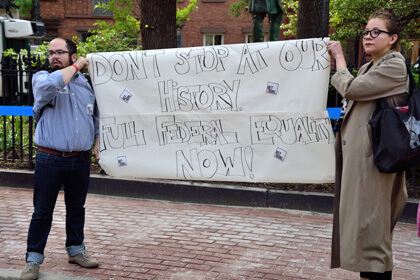In a narrow 5-4 ruling, Ecuador’s Constitutional Court on June 12 approved same-sex marriage and directed the nation’s congress to pass a law providing gay and lesbian couples with full marriage rights.
The ruling came as a result of a lawsuit lodged by multiple same-sex couples who sought equality under the law in a nation that had only provided LGBTQ folks with civil union rights, which lacked certain protections afforded to married different-sex couples.
It is not immediately clear how long couples will need to wait before marrying. Ecuadorian-based constitutional attorney Salim Zaidán told CNN that couples would be able to marry once the court informs local government offices of the ruling, which is required within 10 days. The congress, known as the National Assembly in Ecuador, will subsequently need to pass a law amending the marriage law.
The ruling, which came in the midst of Pride Month and celebrations of the 50th anniversary of the Stonewall uprising, marked the second major development in LGBTQ rights globally in the last week, after Botswana scrapped its sodomy law.
Freedom to Marry founder Evan Wolfson, who has focused on campaigning for same-sex marriage rights internationally after playing a key role in that effort in the US, told Gay City News in a written statement that the ruling in Ecuador “represents another strong victory for the rule of law in Latin America, and, most importantly for love and families, as well as equality and freedom.”
“It’s time for all loving and committed couples in Ecuador, and across the entire region, to have the freedom to marry,” he said.
Ecuador is now the 27th nation in the world to outright approve same-sex marriage.
Ecuador joins Argentina, Brazil, Colombia, and Uruguay as the South American nations having legalized same-sex marriage.
Marriage rights are also seen in the Falkland Islands as well as the South Georgia and the South Sandwich Islands, which are British territories off the coast of South America, though there are questions about whether the South Georgia and the South Sandwich Islands have enforced those rights.
In nearby Latin America and the Caribbean, same-sex couples in Puerto Rico and the US Virgin Islands have been able to get married since the Supreme Court’s 2015 Obergefell v. Hodges decision, while residents of islands overseen by the Netherlands — Aruba, Bonaire, Curaçao, Saba, Sint Eustatius, and Sint Maarten — all recognize same-sex marriages performed in the Netherlands, though such marriages are only performed in Bonaire, Sint Eustatius, and Saba.
Same-sex marriage is also legal in French territories of Guadeloupe, Martinique, Saint Barthélemy, Saint Martin, and Saint Pierre and Miquelon.
In Mexico, same-sex marriage is legal in 17 states as well as Mexico City, and is recognized everywhere in that nation.
In January of last year, the Inter-American Court of Human Rights recommended that Barbados, Bolivia, Chile, Costa Rica, the Dominican Republic, Ecuador, El Salvador, Guatemala, Haiti, Honduras, Mexico, Nicaragua, Panama, Paraguay, Peru, and Suriname legalize same-sex marriage. The high court in Costa Rica last year threw out that nation’s same-sex marriage ban and full marriage equality will be effective there no later than next spring.
Elsewhere in the world, a years-long battle over marriage equality in Taiwan culminated in May when the legislature there passed a law giving couples the right to marry. Taiwan’s path to marriage equality resembled the same process underway in Ecuador: The nation’s high court struck down the ban on same-sex marriage and gave lawmakers two years to create a law allowing same-sex couples to marry.



































